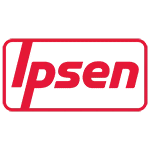This year, Ipsen Japan celebrates 15 years as a part of the Ipsen International family. Their history, however, dates to 1949 when Haruyoshi Shimizu started a company to develop technology for hardening aircraft exterior panels. The business was officially established in 1958 as Shimizu Densetsu Kogyo Co., Ltd and was later renamed SEAVAC. Today, the company specializes in surface treatments and coating processes.
In 1960, SEAVAC’s light alloy heat-treatment process passed Japan Defense Agency standards. They also produced the first mesh-belt furnace for a screw factory in Kyoto, and later introduced the new product at a factory in Osaka. In 1975, the company built their first vacuum heat-treating furnaces.
In 1981, a collaboration took place with U.S.-based Scientific Coating Inc. to develop a device for chemical vapor deposition (CVD) surface hardening. Soon after, their Coating Processing Division was established. In 1984, a low-temperature version of their CVD device was developed with Kobe Steel Ltd. In 1985, they added a physical vapor deposition (PVD) device that used a plasma-arc ion method. A sales agent contract was established with the U.S. company Vacuum Furnace Systems (VFS) in 1987. Later that decade, their vacuum furnaces received an award from the Japanese Institute of Invention and Innovation.
Throughout the 1990s and 2000s, SEAVAC continued to expand in Japan, adding plants in Komaki and Sendai and acquiring a building in Kyoto. They also established a corporation in Fort Wayne, Indiana which provided coating services for tools, dies and other metal parts.
In 2008, the entire heat-treatment division of SEAVAC was sold to Ipsen International. The acquisition was a key part of Ipsen’s strategic expansion in Asia. A milestone was reached in 2012 when Ipsen sold its 100th TITAN modular vacuum furnace. The unit was sold to Tamayakin Co., Ltd. in Tokyo for processing aerospace components and was installed by Ipsen Japan.
Until a global restructuring occurred in 2020, Ipsen’s plant in Osaka manufactured both vacuum and atmosphere furnaces. Today, with 900 furnace installations across the country, Ipsen Japan focuses on customer service, providing sales and support for some of the world’s most advanced and cutting-edge manufacturers.
Source: “Company History – SEAVAC.” 18 June 2020, https://www.seavac.co.jp/en/company/history/.


